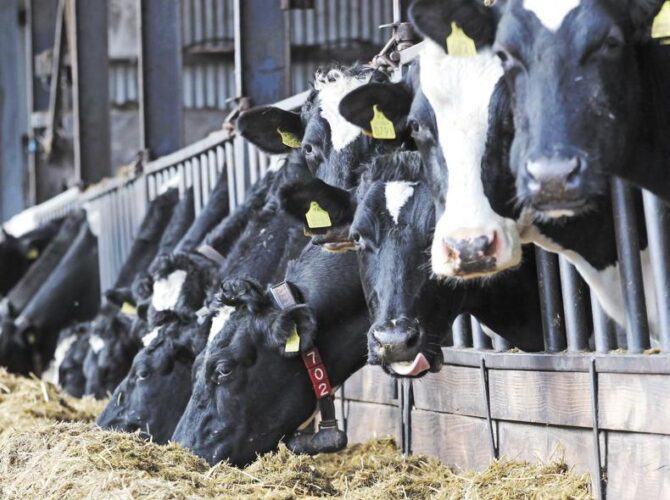Leptospirosis – The Silent Cause of Infertility
12th June 2025

Leptospirosis, more commonly referred to as Lepto, is a bacterial infection mainly in cattle that is spread through infected urine, abortion products and venereal infection. Lepto has significant Zoonotic risk – this is when there is a high risk of infected animals also infecting humans (or vice-versa). It is crucial to protect your herd from potential Lepto infection to reduce the risks to staff and family members on the farm. Lepto presents in humans with flu-like symptoms and severe headaches; many people affected by Lepto end up hospitalised and very unwell for some time and it can be fatal. Another common name for Lepto in humans is “Weil’s disease”.
The most significant form of Lepto in Northern Ireland is the subtype Hardjo. It can be spread through carrier animals’ urine including rodents and sheep which may infect drinking water supplies or pasture. Contamination in pasture can be significant for up to two months after being shed. Another source of spread is by venereal disease, this is most commonly through hiring and buying non-virgin bulls. These bulls infect female cattle on the farm by sexual transmission.
Infectious contact, either through oral ingestion or sexual contact allows the bacteria to penetrate through membranes within the body and multiply within the udder and reproductive tract. An acute infection can occur for approximately 6-9 days, but this is not always easily seen. Symptoms include milk drop (“flabby bag”), infertility and abortion up to 12 weeks after acute infection. Infection can occasionally lead to the birth of weak and non-viable calves. Shedding of the bacteria in urine then occurs and this lasts for around 14 days, this can lead to re-infection and infecting other members of the herd.
Infertility can be the most significant problem seen on farms with Lepto. It is generally characterised by a low conception rate, increased calving interval and an increased number of services before achieving pregnancy. This can be costly from an input point of view but also, in turn productivity and output is impacted with increased calving intervals and more cows culled due to infertility.
If your herd is suffering from periods of milk drop, fertility issues such as infertility or abortions, then it is important to screen for Leptospirosis infection. This can be done through testing of the bulk milk tank or blood sampling individuals. If infection is present, then good biosecurity and a vaccination plan is the best approach to help prevent production losses. From a human health point of view, vaccination of the herd is the best way to protect staff on the farm from potential Lepto infection.
Biosecurity is crucial to prevent Lepto entering and spreading within a herd. A few measures should be taken to maintain robust biosecurity of your herd:
- Minimal movements of cattle into the herd. Isolate new animals for 28 days and test if possible.
- No co-grazing with sheep, goats, alpacas or llamas.
- Piped water sources should be used where possible.
- All staff and visiting personnel on the farm should follow strict biosecurity measures including wearing protective clothing and performing disinfection.
- Field fencing suitable to prevent animals straying to and from neighbouring fields.
Vaccines are available in Northern Ireland which give protection against Lepto Hardjo infection. The primary vaccination course consists of two doses given 4-6 weeks apart followed by an annual booster every year thereafter. The vaccine should be given to all breeding stock including bulls. It is important that the full primary vaccination course is completed at least 2 weeks before breeding commences to prevent abortion. Young calf vaccination is an option on farms with significant Lepto infection causing infertility – this has potential to reduce the risk of colonisation within the reproductive tract of young breeding stock which generally leads to life-long infertility.
Leptospirosis is a bacterium that is hard to avoid, and the impact on herds leading to infertility and the risk to human health, makes it an infection you must control. For more information on vaccination, please call in to any of our Stores to speak with a Registered Animal Medicines Advisor (RAMA) or contact one of our vets in our preventative animal health team on (028) 9261 0485.

